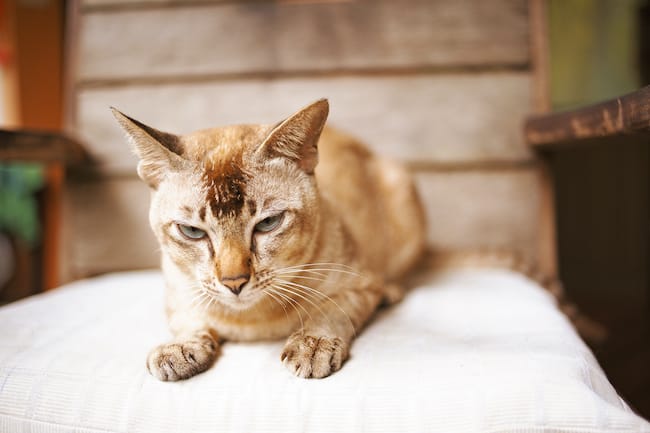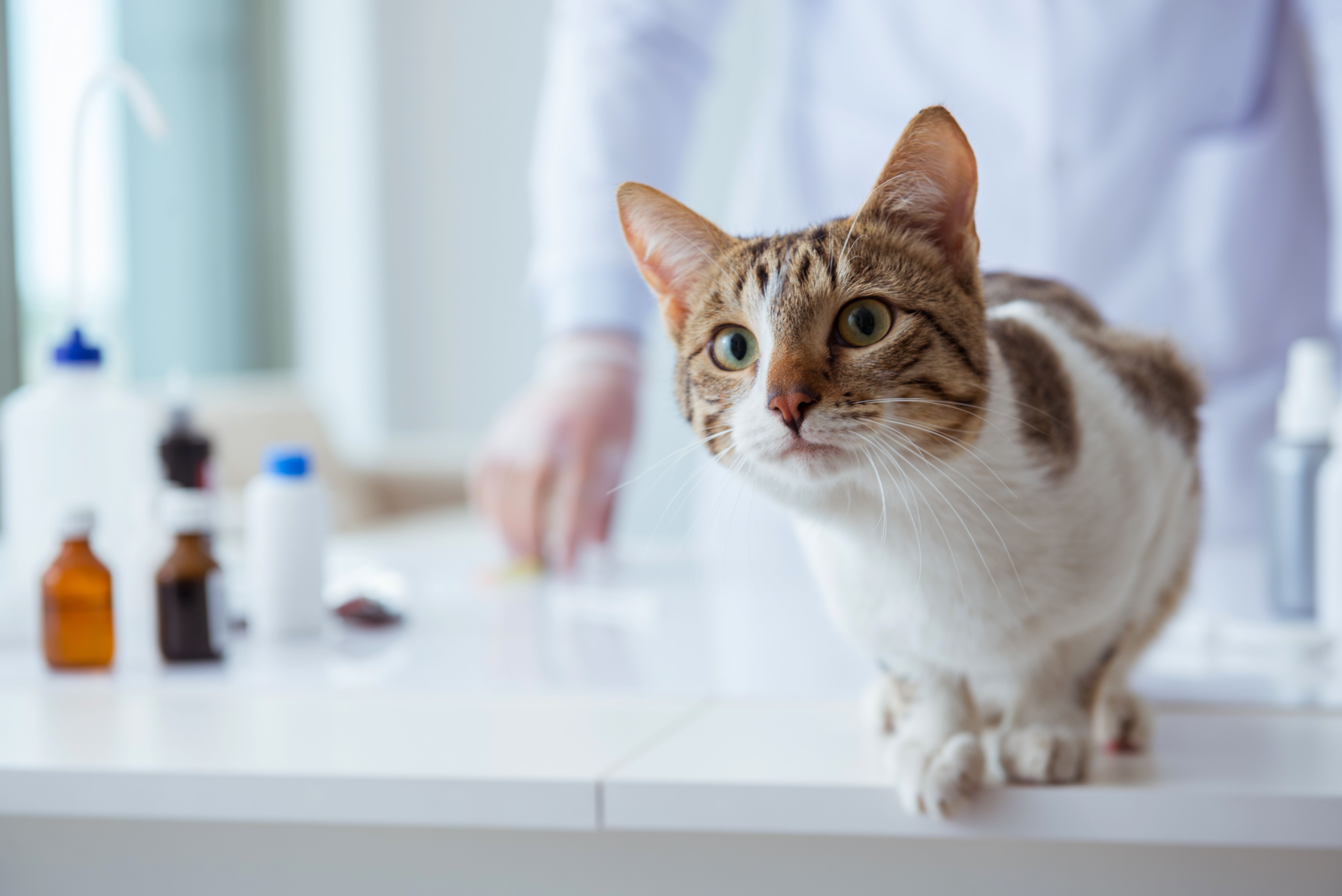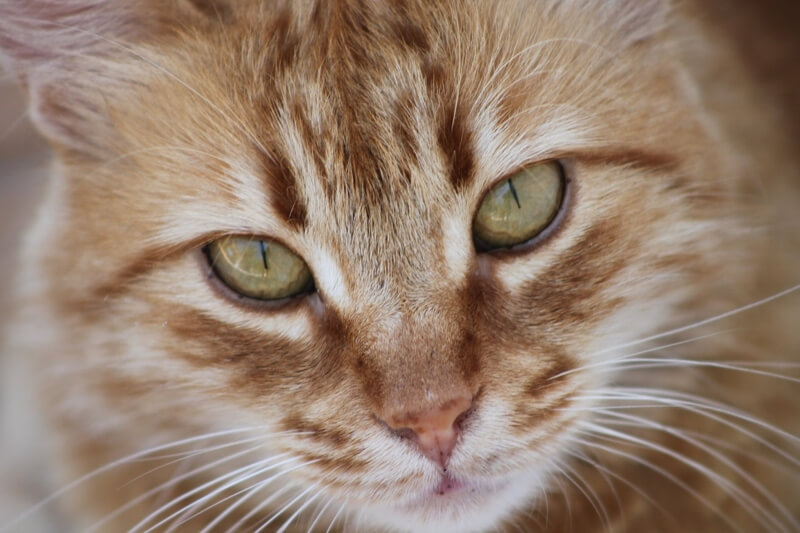gastrointestinal lymphoma in cats
Cats with mucosal lymphoma n ¼ 86 consisted of 51 males and 35 females. GI lymphoma occurs mostly in older cats from 9 to 13 years of age and is most often detected in the small intestine.
Tigger And Is It Ibd Or Lymphoma Wild Rose Cat Clinic Of Calgary
The blood tests are often normal but.
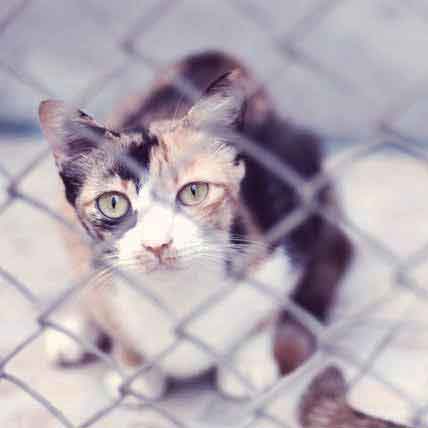
. Gastrointestinal lymphoma in cats is an increasingly common disease that can affect a cats small intestine stomach liver abdominal lymph nodes or large intestine. Hair samples were obtained from 35 cats with gastrointestinal lymphoma and 32 controls. Some of the signs of intestinal lymphoma in cats are weight loss changes in appetite and vomiting andor diarrhea.
Small cell lymphoma SCL may be managed for some time with medications B12 supplementation. The prognosis for gastrointestinal lymphoma in cats depends on the type of lymphoma. Gastrointestinal GI or alimentary lymphoma is the most common form of lymphoma in cats.
Gastrointestinal lymphoma was diagnosed on cytology or histopathology. Lymphoma in cats is now most commonly seen in the intestines. Gastrointestinal lymphoma in cats is a form of alimentary cancer which occurs in the intestinal tract of a cat.
Intestinal lymphomas usually cause poor eating weight loss diarrhea and vomiting. Most cats with GI lymphoma test. Abdominal ultrasonography is useful to document intestinal wall.
Mediastinal Lymphoma in Cats If your cat has mediastinal. The following signs and symptomsmay indicate that a cat has developed this kind of cancer. Appetite loss or sudden weight loss 2.
It is likely that a cat with gastrointestinal lymphoma to have some issues with doing its business. It is perhaps one of the most common types of all cancer associated with cats. CE Lymphoma is the most commonly diagnosed neoplasm in cats and gastrointestinal GI lymphoma is now the most common anatomic form.
Throughout these appetite struggles Mimi was also dealing with another symptom. Refusing to be touched. Lymphomas were classified according to the World Health Organization WHO scheme.
The mean age at the time of diagnosis was 126 years SD 34 years. Feline GI lymphoma is histologically classified as low intermediate or high. Systemic staging tests complete blood countchemistryurinalysisthyroxin levelsthoracic radiographs are used to identify concurrent disease.
Gastrointestinal GI lymphoma should be suspected in animals with an acute or prolonged history of signs of disease related to the GI tract. Gastrointestinal lymphomas were identified in 120 cats between 1995 and 2006.

What You Need To Know About Feline Intestinal Lymphoma Vlog 98 Youtube

Feline Lymphoma Clinician S Brief
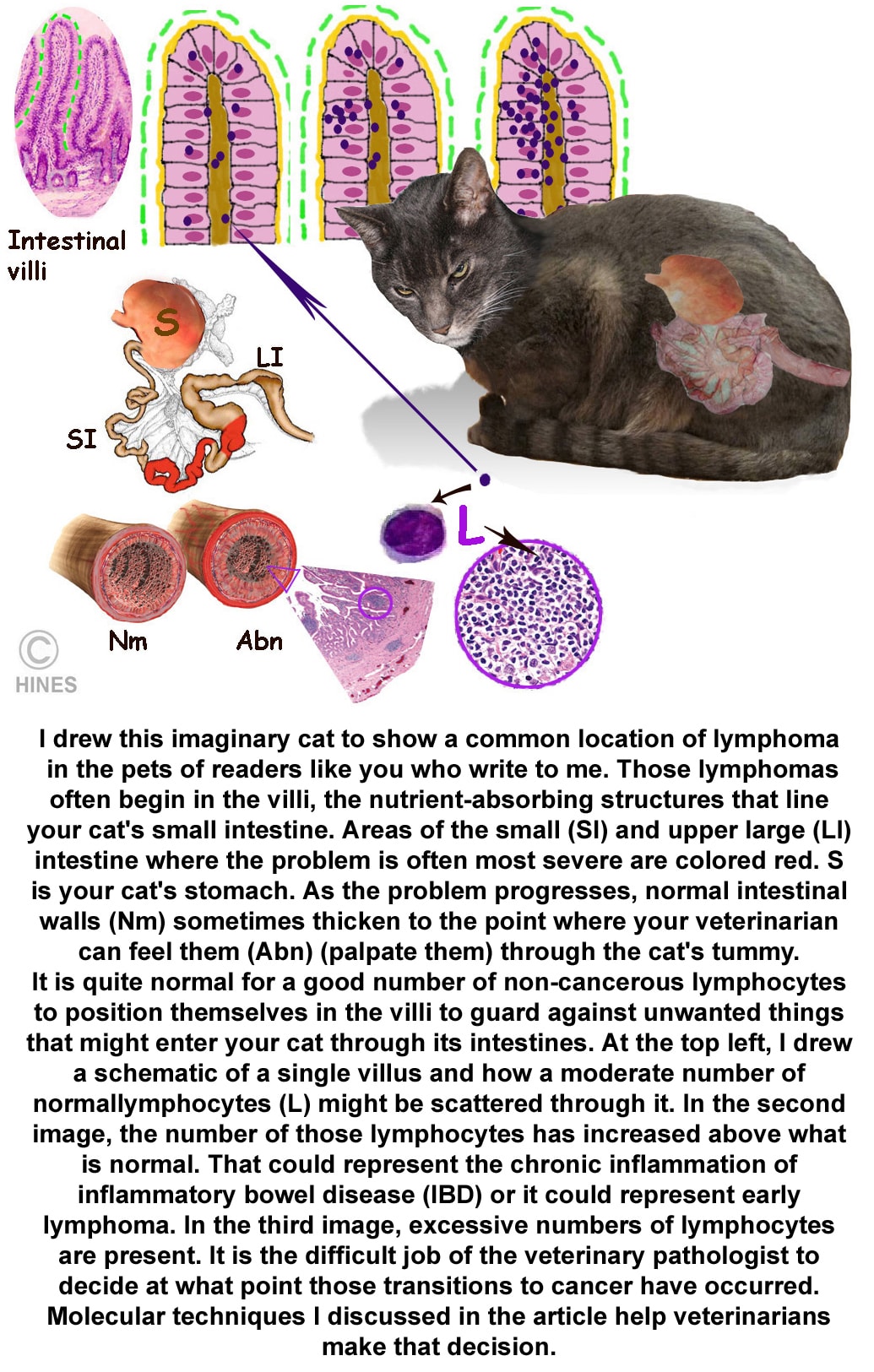
Lymphoma In Your Cat Ron Hines Vetspace 2nd Chance The Animal Health Website

Feline Lymphoma Clinician S Brief

Cat Lymphoma Chemotherapy Treatment Options Vlog 100 Youtube
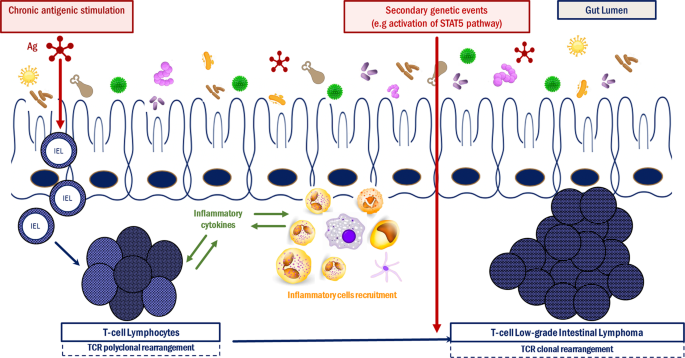
Feline Low Grade Intestinal T Cell Lymphoma A Unique Natural Model Of Human Indolent T Cell Lymphoproliferative Disorder Of The Gastrointestinal Tract Laboratory Investigation
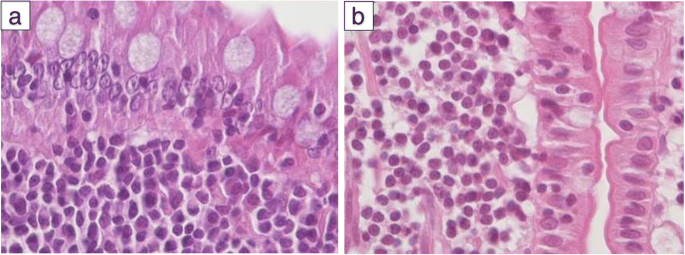
Feline Low Grade Alimentary Lymphoma An Emerging Entity And A Potential Animal Model For Human Disease Bmc Veterinary Research Full Text

Feline Lymphoma Ethos Veterinary Health

Extranodal Lymphoma In The Cat Semantic Scholar

Alimentary Lymphoma In Cats And Dogs Veterinary Clinics Small Animal Practice

Feline Alimentary Lymphoma A Guide To Cytological And Histopathological Diagnosis For The General Practitioner Companion Animal

Alimentary Lymphoma In A Cat Semantic Scholar

Panel Gastrointestinal Lymphoma
